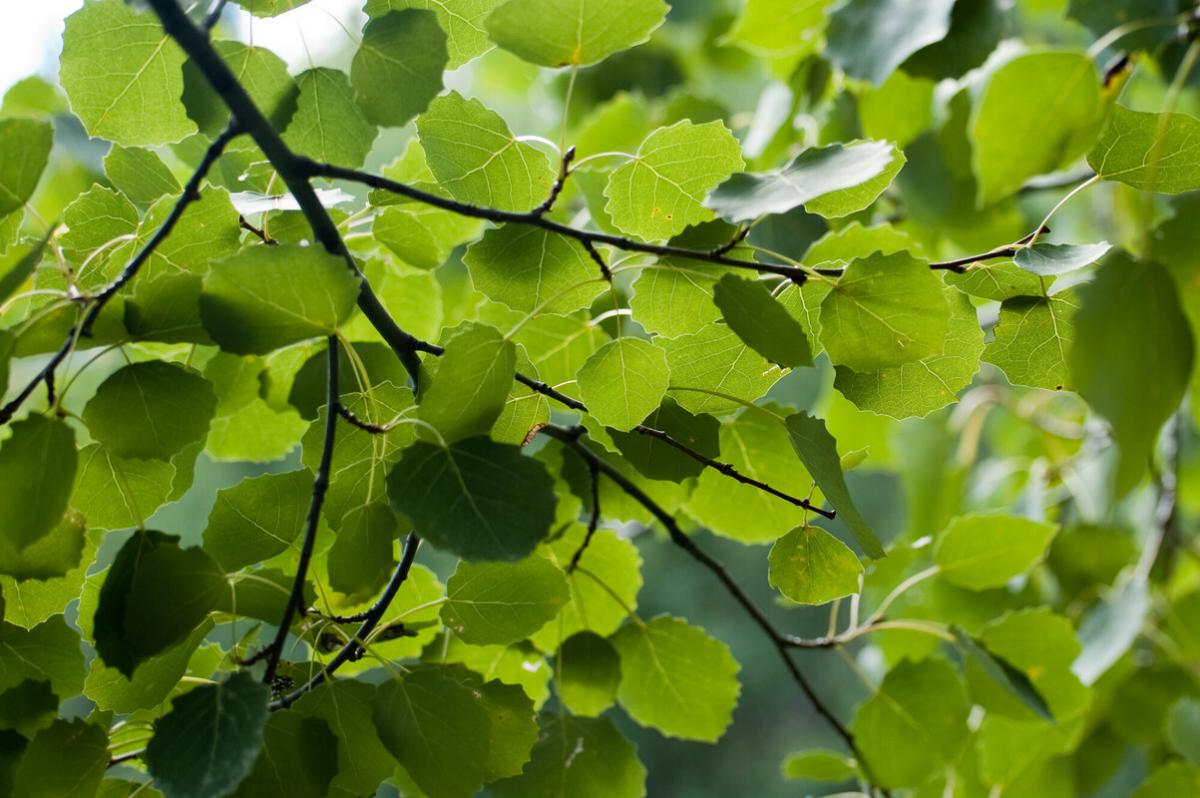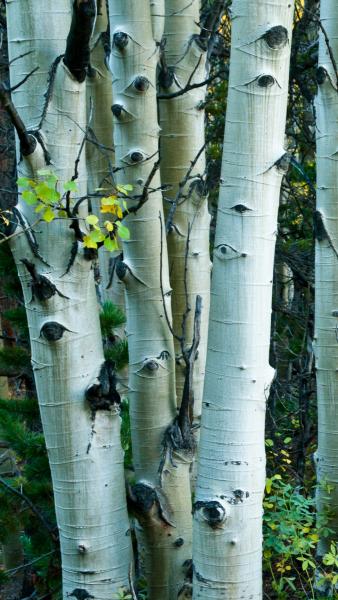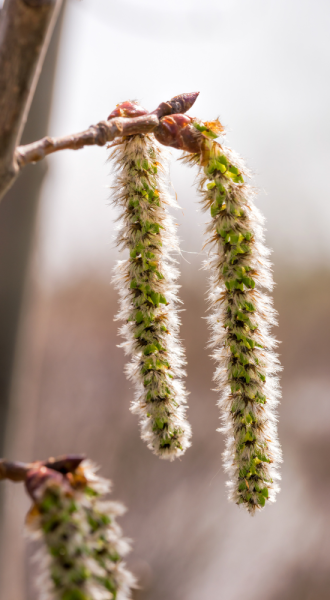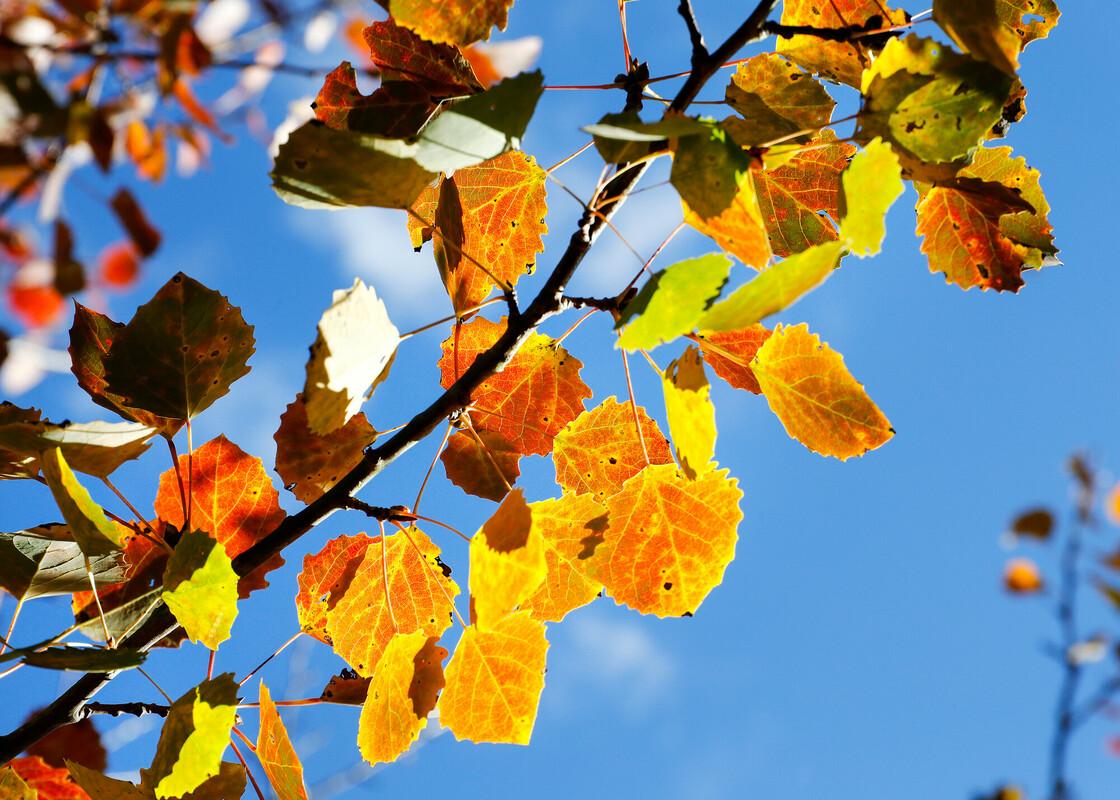
Species Name: Populus tremula
The most common native poplar, the aspen, is easy to distinguish by its leaves that flutter in even a very light wind. The Latin name "tremula" means shaking/trembling. The name was given to the aspen because of the way its leaves move.
The bark is pale greenish-grey. Young trees are smooth with dark grey diamond-shaped lenticels, becoming dark grey and fissured on older trees.

Aspen have rounded leaves growing on long flattened petioles causing the leaves to flutter almost constantly.

The flowers are wind-pollinated catkins produced in early spring before the new leaves appear. Buds are small, hazel brown and pointed.

It is an extraordinarily hardy, pioneer tree. Alongside birch, it is the first to appear on abandoned soil, as the initial stage of succession leading to a new forest. However, it is light-demanding and as soon as the more dominant trees grow up, it is only really found along the edges. Around the Forest, it grows in clusters, produced by vigorous root suckers.
Aspis, the aspen’s Greek name, means shield, and it is seen as a symbol of protection. Because of this, they were often planted outside people’s homes, and the soft whistling noise created by the leaves was said to be a communication with another world.
Aspen is a soft, lightweight wood, often used in the production of matches.
As a pioneer species, it offers valuable habitat and protection for wildlife, especially in the initial stages of woodland creation. It continues to be a host for a variety of wildlife though, including the aspen hoverfly, which relies solely upon the tree.
When the roots seed out suckers, they may look like individual trees, but they are considered a single organism. The one-tree aspen forest in Utah, USA is made up of over 47,000 trunks, connected through one root system, making it the largest organism on Earth.
1% of the trees we are planting in the Forest this season are aspen trees.




